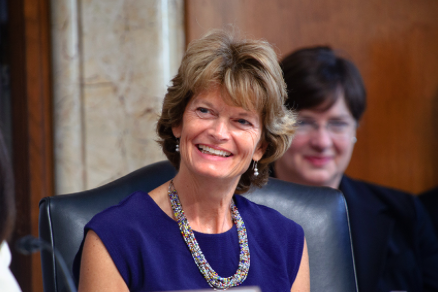GIVING BACK AND MAKING A DIFFERENCE
By SCOTT HAWKINS
CANDIDATE FOR GOVERNOR
Each Thanksgiving, I feel thankful for all that Alaska offers to its families.
Having experienced tough economic times early in my adult life, I wish for everyone the security and prosperity to enjoy memorable feasts and fellowship in this season. I know just how important that is to people.
As Alaskans, we have SO much to be thankful for: The bounty of our lands and waters; the indomitable spirit of our hardy citizens; the beauty of our lakes, streams and mountains.
And, for those who wish to, the remarkable opportunity to make a difference.
Here are some things about Alaska for which I am particularly thankful:
That even in these trying times, Alaska remains a land of opportunity. In “The Great Land”, the American dream is still alive and well. Preparation, hard work and initiative will still get you far.
That our families are still the least taxed families of any state in America. Some in Alaska have been trying their best to eliminate that blessing, but thankfully they have not yet prevailed. Granted, most of us are hard-hit by federal and local taxes, but our state government has not yet added to that burden.
That Alaska has done such a wonderful job of saving a healthy portion of our oil revenues in the Alaska Permanent Fund over the past 40 years. The balance of the fund is well north of $60 billion this Thanksgiving – it is truly the envy of the world.
That if the Fund is managed well going forward, it has the capacity to spin off steady annual earnings sufficient to fund a very healthy dividend (much higher than this year’s $1,100), and ALSO close the fiscal gap without requiring a statewide income tax. Now that’s a win!
That the Permanent Fund Dividend program (PFD) has been such a success, in so many ways. In addition to providing Alaska families a share of their state’s oil wealth, their very own piece of the action, the PFD program has resulted in extremely strong public support for savings and reinvestment. I firmly believe that without the PFD, our fund balance this Thanksgiving would not be nearly as high, our financial position not nearly as strong.
That the Fund’s original vision dating back to the mid 1970s was to turn a nonrenewable resource (oil) into a renewable resource for the future (financial assets), in order to prepare us for a smooth transition. Mission accomplished! For that, I and most other Alaskans are deeply appreciative.
That Alaska is blessed with so many exciting economic opportunities. We have several major new oil discoveries in recent years, more than at any time since the discovery of the elephantine Prudhoe Bay field. If we are collaborative and trustworthy toward the small, independent owners of several of those fields, we can put substantial amounts of new oil in our pipeline. And new prosperity into our homes.
In addition to new oil discoveries, Alaska is also blessed with: numerous new mine development opportunities, a very real prospect of being able to harvest more timber, and strong seafood prices that are benefiting families throughout our coastal regions. Ample potential, both realized and yet-to-be realized.
On a personal note, moving beyond the big picture, Alaska has been good to me and my family for the past 35 years. I have experienced first-hand the benefits of hard work and initiative, as have so many others.
I am personally thankful:
That I get to spend Thanksgiving with three generations of family. Both of my parents are healthy and vital – a tremendous blessing! They normally host Thanksgiving dinner at their house in Olympia, and this year is no exception.
That my sister, plus nieces and nephews, will be there too, as will my wonderful wife and daughter. They are kind, accomplished people who are truly amazing, each one of them.
That for now, at least, our family is blessed with good health, both physical and mental.
That so many other friends and colleagues around me, including those working within the companies I have co-founded, enjoy similar blessings.
Yet, it is not lost on me that many Alaskans do not have as much to feel thankful for this Thanksgiving. Some face serious health problems or are grieving the loss of loved ones. Some have been victimized by the recent crime wave. Many families are struggling to stay afloat during the current economic downturn – hoping for better days ahead – so they have no choice but to rein in their holiday celebrations.
No question, Alaska has some big problems to solve. But one of our greatest blessings is that, here, an individual can still make a big difference. If we so choose, we can move the needle. And we can see the tangible results of our efforts.
In the year ahead, I will be doing my best to help tackle some of these problems, to make a difference in Alaska. I hope you do, too.
Happy Thanksgiving!
Scott Hawkins is a 35-year Alaskan who has served as a business owner and manager, an economist, an economic development professional, and a civic contributor. Earlier this Fall, he filed a letter of intent to explore a run for governor.
Editor’s Note: Must Read Alaska offers space on our web blog to all announced Republican gubernatorial candidates. Last week, we featured Rep. Mike Chenault, who addressed the spate of misconduct allegations sweeping legislatures across the country.








